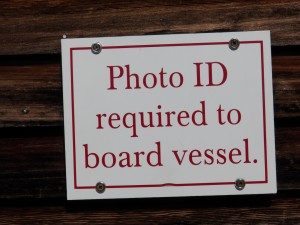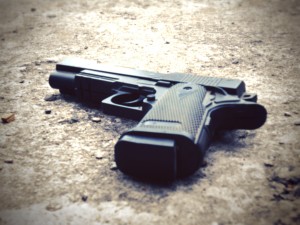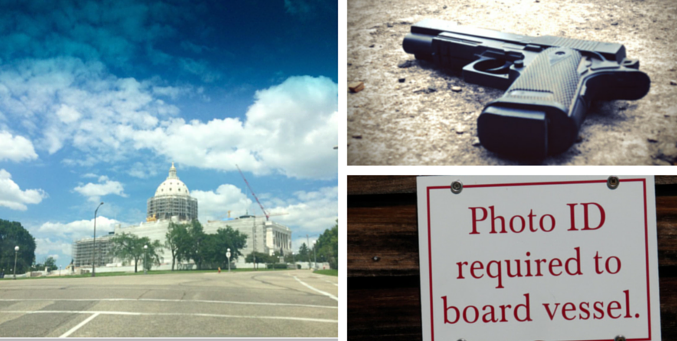Politicians in St. Paul may have a lightened week ahead, but members of both the House and Senate face some tough decisions in the Minnesota Legislature.
The REAL ID Act will be making its way through The Civil Law and Data Practices  Committee at 9a.m. on Monday, April 25, 2016. The act was enacted in 2005 in the post 9/11 era where the Federal Government was trying to tighten security in the Country. As reported by Alpha News, Minnesota is one of four States who have not complied with the Federal Regulation. As it stands, current Minnesota Driver’s License do not meet Federal regulations. It could pose a problem as the REAL ID’s will be required to travel. Governor Dayton was granted an extension until 2018 to get the program underway in Minnesota. The bill, sponsored by Rep. Smith (R-Maple Grove), will be discussed in room 10 of the State Office Building to go over changes in fees, identification requirements, rule-making requirements, and reports to the legislature.
Committee at 9a.m. on Monday, April 25, 2016. The act was enacted in 2005 in the post 9/11 era where the Federal Government was trying to tighten security in the Country. As reported by Alpha News, Minnesota is one of four States who have not complied with the Federal Regulation. As it stands, current Minnesota Driver’s License do not meet Federal regulations. It could pose a problem as the REAL ID’s will be required to travel. Governor Dayton was granted an extension until 2018 to get the program underway in Minnesota. The bill, sponsored by Rep. Smith (R-Maple Grove), will be discussed in room 10 of the State Office Building to go over changes in fees, identification requirements, rule-making requirements, and reports to the legislature.
Senators will be locked and loaded as they prepare to take on an important topic in the Senate Judiciary Committee on Tuesday, April 26, 2016. Sen. Latz (D- St. Louis Park) will be taking aim at gun owners across the State as he introduces legislation for criminal background checks and for restrictions on gun ownership.
S.F. 2493 will require criminal background checks for the transfer of gun ownership. The law will enact penalties for those who complete the transfer without background checks. A first conviction will be charged with a gross misdemeanor. A second conviction is more substantial as an individual may be found guilty of a felony, can me imprisoned for up to two years, and can also be subject to a fine of up to $5,000.
Exclusions apply in cases of historical collections, repair, between licensed dealers, a loan between law enforcement, and between hunters (for a period of 12 hours).
The law sets out specific instruction on how and to whom guns may be transferred.
S.F. 2980 is introduced as a voluntary database and gun violence protectant orders. One section of the bill will create a database of individuals who voluntarily admit that they wish to be denied a gun permit and want to be denied the option of purchasing a gun. The database will be run by the Commissioner of Human Se rvices. Local law enforcement agencies will have access to the database, but only on an individual request. The bill also lays out the duties of the Commissioner in running the database, duties of law enforcement in a voluntary gun transfer.
rvices. Local law enforcement agencies will have access to the database, but only on an individual request. The bill also lays out the duties of the Commissioner in running the database, duties of law enforcement in a voluntary gun transfer.
Gun Violence Protective Orders allows individuals to petition the Court to ban another individual from having a gun for a determined period of time. The individual that is filing the petition must prove that an individual poses a danger to themselves or others. The order can be issued for having a history of making threats to having an arrest record. If a person is issued a gun violence protective order, they have 24 hours to transfer their guns to a licensed dealer or law enforcement.
If an individual is caught lying to the Court when petitioning for the order, they will be charged with a misdemeanor. If a person violates the order, they will be charged with a misdemeanor and will not be allowed to own a gun for five years.
The Senate Sergeant of Arms will be at the door handing out tickets before 8:30 a.m. as seats will be limited.
Subscribe to Alpha News as we continue to keep you informed on happenings at the State Legislature.





